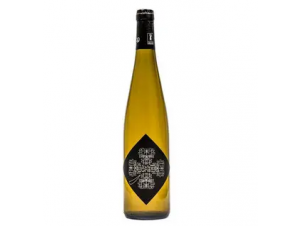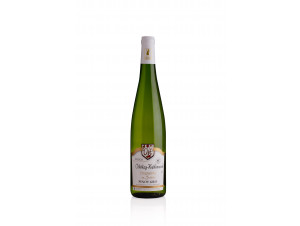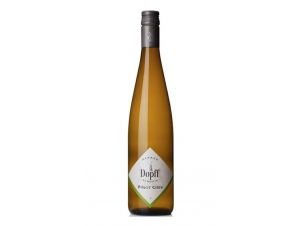You have no items in your shopping cart.
Wine Alsace Pinot Gris
The Pinot Gris d'Alsace offers dry white wines, made from the grape variety bearing the same name as its appellation. It is a great white wine, powerful and heady, with the Appellation d'Origine Contrôlée since 1962. Pinot Gris is a wine grown mainly in the vineyards of Alsace, and has a most amazing history! Read more on Alsace Pinot Gris
-
Top Selling-20%
-
Top Selling-20%
-
Top Selling
- -21%
- -15%
- -10%
Appellation Alsace Pinot Gris
Pinot Gris or Tokay from Alsace?
The origin of Pinot Gris has long been controversial. Its history varies and evolves according to beliefs. Discover the unique history and legend that revolves around the Pinot Gris AOC. Pinot Gris is a very old grape variety. It has been planted in the Alsatian vineyards since the 17th century, but Alsace is not its original vineyard.
In the past, Pinot Gris was also called Tokay d'Alsace. As this nickname, or second name, is frequently disputed, it is now "forbidden" to call Pinot Gris "Tokay d'Alsace", and has been since 2007. For a very long time, it was believed that Tokay d'Alsace originated in Hungary. In fact, it was simply confused with the Hungarian appellation "Hungarian Tokay". A legend developed around this name. Many people have reported that pinot gris was imported from the city of Tokaj in Hungary in 1565, to be cultivated in Alsace during the war.
So Pinot Gris comes from Hungary, and should also be called Tokay? Would it be the least Alsatian of Alsatian wines? Finally, and to end the debate, this legend has been proven wrong. Hungarian Tokay is a "Furmint", not a Pinot... In truth, Pinot Gris is a grape variety that originated in Burgundy! It was born there, and was definitively established in the Alsatian vineyards much later.
AOC since 3 October 1962, Alsace white Pinot gris is one of the greatest wines of France. It is cultivated in 119 communes of the Alsace vineyard and represents about 12% of the total vineyard. This delicious bluish-grey grape from the North-East of France is one of the 8 main grape varieties of the region. They are referred to as the "princes of the East", given the meteoric rise in their production. In 40 years, Pinot Gris has gone from only 4% of the total vineyard production to 15% of the total vineyard of Alsace. This highly appreciated grape variety offers dry white wines of the "still wine" category, of very high quality. The AOC Pinot Gris marvellously combines the power with the mellowness of an exceptional dry white wine.
Characteristics of the AOC Pinot Gris vineyard
Pinot Gris, the grape variety of this AOC, is cultivated in a large part of the Alsace vineyard and, depending on its exact location, will benefit from various qualities. The climate of the Alsatian terroir is considered "temperate-continental", or semi-continental.
However, the region benefits from a specific exposure, thanks to its numerous valleys. The hills on which the vines are nestled therefore benefit from a multitude of microclimates, which are particularly favourable for wine. The Alsace terroir is very rich and varied. Some of its soils are limestone or clay-limestone, while others are a mixture of marl, granite, schist and volcanic soils. These soils, most of which are thousands of years old, provide an ideal growing environment for Pinot Gris.
The Pinot Gris AOC is made from its own grape variety. Nevertheless, it is used in the blending of many other wines, such as: dry white wines, sweet wines, sweet natural wines (VDN), and sparkling wines. The basic yield of Alsace pinot gris wines is 100 hectolitres per hectare. Note that this AOC also offers grands crus, whose authorised yield is 70 hl/ha. Finally, Pinot Gris represents about 11% of the wine production in Alsace, with 98,000 hectolitres of wine per year.
How to taste a Pinot Gris?
The colour of this dry white wine is yellow, with discreet green reflections in its youth, then it becomes more and more yellow and golden with age.
This full-bodied wine has a subtle aromatic bouquet that evolves strongly over the years. In its youth, the typical aromas of this variety are divinely fruity and greedy. The dominant flavour is of dried fruit such as apricot, followed by scents of beeswax and honey.
The aromatic palette becomes more and more intense with a few years in the bottle and reaches a rare complexity. The olfactory tasting offers aromas of undergrowth and mushrooms, accompanied by smoky scents, typical of pinot gris. On the palate, the fruity flavours are immediately appreciated. Its taste is persistent and pleasantly peppery. It is perfectly balanced, full and fleshy, neither too acidic nor too sweet.
What dish to serve with a Pinot Gris?
Pinot Gris is best enjoyed at a temperature of between 8°C and 10°C. It is an excellent aperitif wine, which should be aerated before serving, either in a carafe or by letting it rest for a few minutes in the glass. It will then reveal its best flavours. To refresh this dry white wine, it is recommended to use a bucket filled with ice, rather than opting for cooling in the fridge.
Enjoy a Pinot Gris as a starter with foie gras or asparagus, for example. But this dry white wine also goes well with more flavourful dishes: sauerkraut, charcuterie, red meat, poultry (chicken, goose, capon...), but also offal, mushrooms, etc.
During a stay in Alsace, enjoy your Pinot gris with a "Baeckeoffe", a traditional dish of the region made of potatoes and vegetables, mixed with an assortment of beef, lamb and pork.





































 TWIL - Achat de Vin
TWIL - Achat de Vin


